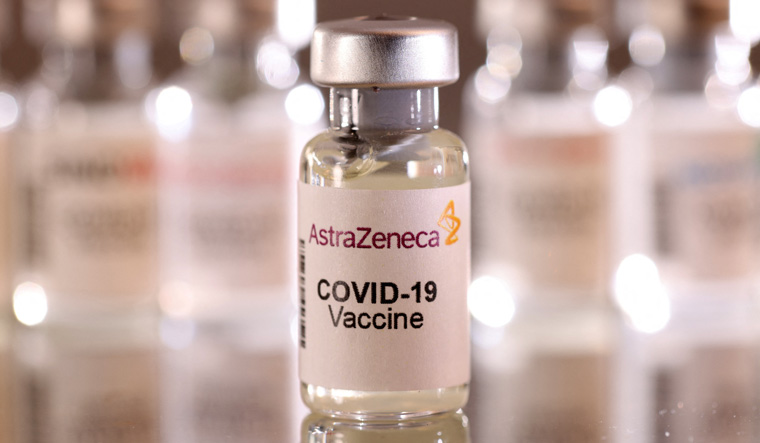Pharmaceutical company AstraZeneca has announced that it was withdrawing Covid-19 vaccines, which it renamed Vaxzevria in 2021, worldwide. The company cited a "surplus of available updated vaccines" that target new variants of the virus as the reason for the move.
The crucial decision comes days after the company acknowledged in court papers that the vaccine carried serious side effects, known as thrombosis with thrombocytopenia, or TTS, in some people. This also follows the AstraZeneca's decision to withdraw its European Union marketing authorisation. On Monday, the European Medicines Agency issued a notice that the vaccine is no longer authorised for use.
"As multiple, variant Covid-19 vaccines have since been developed there is a surplus of available updated vaccines," the company said. This has led to a decline in demand for the AstraZeneca vaccine, which is no longer being manufactured or supplied.
"According to independent estimates, over 6.5 million lives were saved in the first year of use alone and over 3bn doses were supplied globally," the statement said. "Our efforts have been recognised by governments around the world and are widely regarded as being a critical component of ending the global pandemic. We will now work with regulators and our partners to align on a clear path forward to conclude this chapter and significant contribution to the Covid-19 pandemic."
Though the official announcement came recently, other countries have already stopped supplying the vaccine. It has not been available for use in Australia since March 2023 after being phased out sinceJune 2021 due to the widespread availability of newer vaccines.
According to the World Health Organisation advisory, the latest Covid-19 vaccine formulations should target the JN.1 lineage of the virus, which is displacing existing XBB lineage variants.
Recently, the UK-Dutch company admitted that its Covid-19 vaccine can lead to a rare side effect known as Thrombosis with Thrombocytopenia Syndrome (TTS). The rare syndrome occurred in about two to three people per 100,000 who were vaccinated with the Vaxzevria vaccine.
However, the chair of epidemiology at Deakin University in Australia, Prof Catherine Bennett, said the vaccine had played a pivotal part in the worldwide fight against the virus. "It has saved millions of lives and that should not be forgotten," she told The Guardian. "It was a really important part of the initial global response. However, it targeted the initial ancestral variants. We’ve now moved into a vaccine chain where we have products available that are chasing the variants that are emerging," she added.










